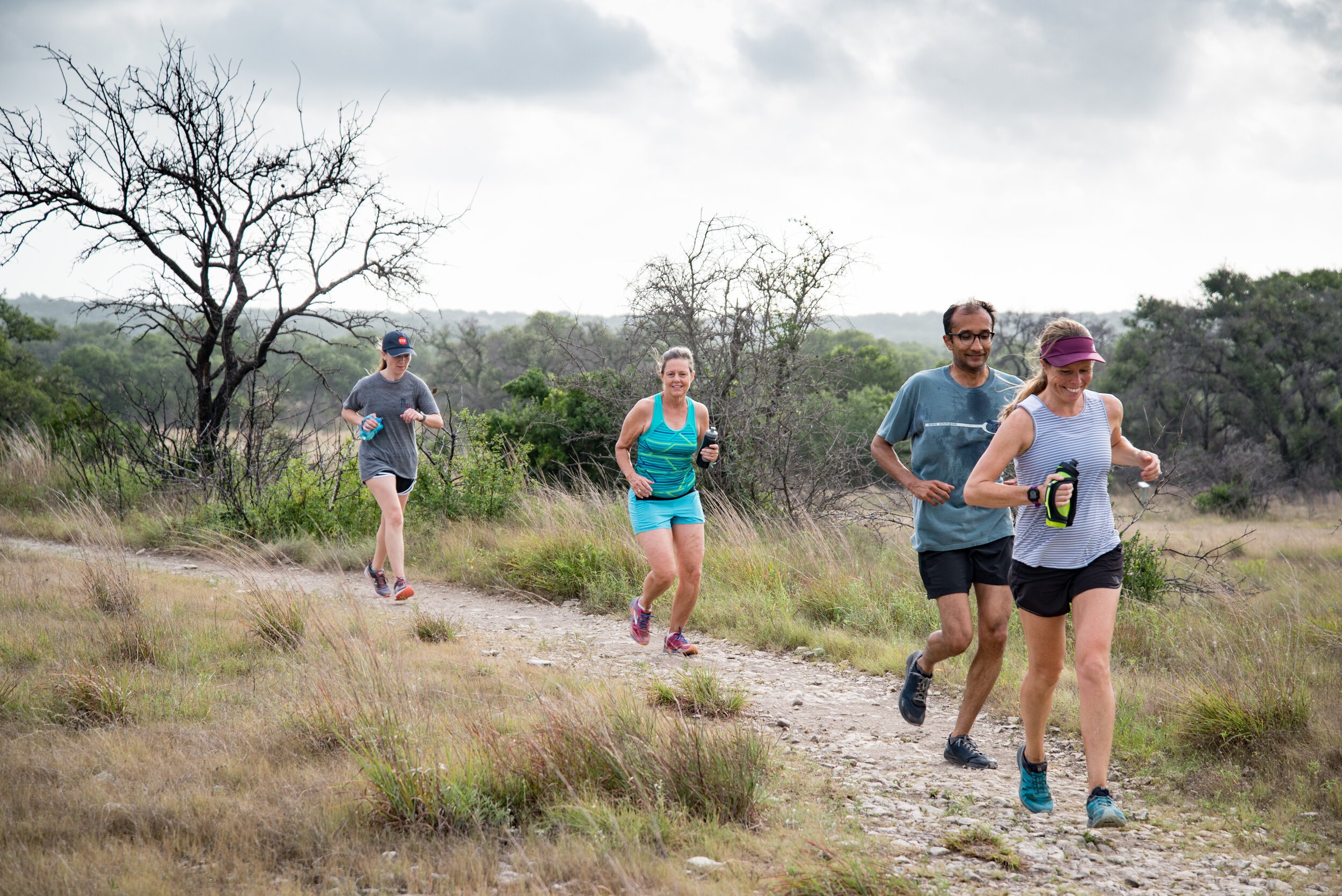Summer Base Miles
Its mid June and summer is here in Texas, and as it looks most of the US is seeing early heat waves. Summer is my preferred time to increase mileage. This year I am planning to race the Leadville 100 in August, so while it doesn’t quite work for my schedule I do still implement it for the group of 100 + Trail Roots members. Running high mileage during the summer was something I’ve been doing since high school, and I have seen significant improvements from doing this. While there is no perfect recipe, let’s look at what high mileage means, and then I’ll give some guidelines for how to build up your mileage, and for how long to hold the high mileage.
In high school I peaked around 50 miles during the summer going into my senior year training for the 1 mile -5k. Other runners in my district were doing 70 or even 80 miles/week. Turns out unfortunately that many of those guys burnt out in college. My coach kept me dialed back though. Really until that point I didn’t even really track mileage. GPS watches weren’t even a thing back then, so distances were an estimate. However, I had a new coach this season and he encouraged me to hit 50 miles over the summer. For the first time I started tracking my weekly distance and it encouraged me to run more. In college I was running 95-110 mile during my biggest weeks leading into my cross country season. Just recently I hit 125 miles weeks training for the Leadville 100. So these aren’t numbers for everyone, but just a picture of how things have changed and progressed based on the goal.
What I encourage my runners to do is look at where their mileage has been in the last 2-3 months and compare it to where they want to be based on their race goals for the upcoming year. So if they have been running around 25-30 miles/week recently and feeling comfortable there, and their peak mileage is 55-60 miles/week (taking into consideration their all time peak mileage as well) I start with where they are. Typically I’d recommend a 6 week build up and a 3-4 week hold around their peak mileage. Another consideration is how injury prone the runner may be. Are there current injuries or challenges they are dealing with? (Side note that summer is also a good time to add in some moderate strength or weight workouts. While we back off the speed work I really like building a foundational strength routine during this time. It also helps lay a nice groundwork for the rest of the year. For the mileage progression I typically stick to 10-15% increase per week. If your mileage is a little lower to start out than you typically might be you’re probably ok to increase a little bit more aggressively. You also need to consider if you have a race coming up in Sept/Oct. You will want to leave time to add in quality/speed work. The reason why I like to keep the increase around 10% is because historically speaking that rate is gradual enough to reduce risk of injuries and overtraining. It may feel like a slow progression at first when you are below 25 mi/week, but when you are in the 50+ mileage range it starts to build much quicker. If you’re not working with us for coaching, there are plenty of online resources available like readyplanner.run which has a mileage build up calculator. Its easy to use and will line out your weekly mileages while including a recovery week. I typically do a 3 week build with 1 week recover at 20-25% decline during the rest week. However with runners that are more injury prone or really hitting some personal peak mileage I may do a 2 week build with 1 week of recover especially as I get closer to their goal. There are plenty of ways to skin a cat with training plans!
Once you hit that peak then try to hold it around that mileage for a few weeks. You’ll be surprised that even without much speed work that your fitness will have increased significantly with the higher mileage training. This is a good time to do a little check in effort. It can be encouraging to see your improvement solely from the increase in mileage. Then you can reduce mileage slightly and start introducing your speed work. You may not have hit your peak yet, and thats ok, but just be aware that you may need to dial back your mileage when you start adding workouts. The workotus will help dial in pace work and race training as you get closer, but these longer runs will be a great foundation for you to build on!
Most runners will benefit from a period of relaxed training. For a lot of runers though running is a lifestyle and daily routine, its a social outlet or alone time. It’s relied on for physical, mental, and spiritual reasons. It can be easy to fall into a grind mentality, and once a runner sees the benefits they keep pushing until eventually something breaks. This is where having a coach can be really beneficial. Someone to keep you dialed back when we may prefer to grind on will likely keep you dealing with less injury and over training. Taking a season of training where you aren’t going 100% will help across the board to ready to jump in feet first when the time comes to ramp up.
As always if you have questions feel free to reach out to me or any of our coaches at Trail Roots! Happy Training!



